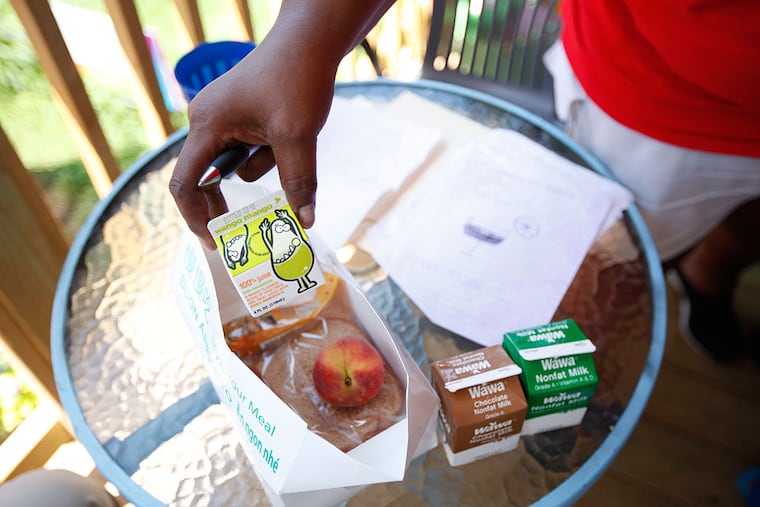Summer means hunger for nearly 1 in 4 Philadelphia kids. Health care providers can help. l Opinion
When food is scarce, kids land in the hospital with everything from stomach pain to seizures, writes a Children's Hospital of Philadelphia emergency physician and researcher.

As the school year comes to a close, I can’t help but think of the fact that nearly one in four kids in Philadelphia don’t get the food that they need to lead a healthy, active life. How is it that in a country of wealth and excess, many of children’s basic life needs are not being met?
Medical visits for hunger-related complaints have two major peaks: in the depth of winter and when school is out of session. As a pediatrician in the emergency department, I see this hunger present as belly pain quickly cured by a sandwich; poorly controlled diabetes because of inexpensive calorie-dense, nutrient-poor food; and in severe cases, even seizures in babies because of watered-down formula. When society fails these kids, it becomes the health-care system’s responsibility not only to address health concerns, but also to help improve the family’s resources.
Community agencies have been addressing social need for far longer than the health-care system. By partnering with and learning from organizations in the community, we can address food insecurity, or hunger, and improve the health outcomes of children while strengthening the social safety-net in Philadelphia neighborhoods.
During the school year, more than 21.5 million low-income children across the country rely on free and reduced-price school breakfast and lunch as their primary source of nutrition. While summer should be a carefree time of playing outdoors for kids, without food provided through school, it is instead too often a time of hunger. Federal summer nutrition programs through the U.S. Department of Agriculture provide meals to children during the summer months. Unfortunately, due to lack of awareness of these programs, few families who could benefit from them participate. Although there are more than 1,000 of these summer meal sites in Philadelphia, only one in seven children who receives free or reduced-price school meals also participate in summer meal programs.
This is the exact scenario that calls for strong collaboration between health systems and community partners to ensure these children are not falling through the cracks.
For the past two years, Children’s Hospital of Philadelphia has partnered with the Nutritional Development Services of the Archdiocese of Philadelphia to feed kids a complete lunch while school is out, and to provide families with information about nearby summer meal sites. This program is aptly named Complete Eats. Through the Complete Eats program, we served nearly 7,500 balanced lunches to patients and their siblings last summer, and connected families with food sites in their communities. An early evaluation — results publishing soon — of this program demonstrated that providing summer meals to children in a clinical setting is feasible and acceptable to families, and did not interfere with clinical care. Caregivers reported feeling that the hospital was a good location for the program, and while the majority had not previously heard about the federal government’s summer nutrition programs, after participating in Complete Eats, nearly all participants shared plans to access a meal site in their community. The Complete Eats program provides tangible evidence of the potential of community-clinical partnerships to connect families with the services that they need most.
As an increasing number of health-care systems begin to screen for social needs, I would advise them to take stock of the strength in their communities and build effective and lasting partnerships for the benefit of their patients. Here in Philadelphia, the Summer Meals program begins on June 10, so if you are a health provider and suspect that your patients are struggling with hunger, ask aboutthe resources available. Anyone, anywhere across the country can text “Food” to 877-877 to find free summer meals in their area and help kids play, grow, and return to school ready to learn.
It’s time to forge more partnerships and reinforce the safety net for kids. No child should be left hungry simply because school is out of session. It’s time to strengthen our community-clinical connections to improve food-insecure children’s access to food, because hunger doesn’t take a holiday.
Danielle Cullen, M.D., MPH, MSHP, is a researcher at PolicyLab and an emergency medicine physician at Children’s Hospital of Philadelphia.